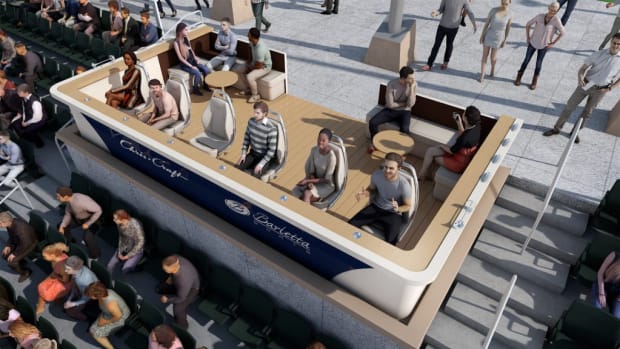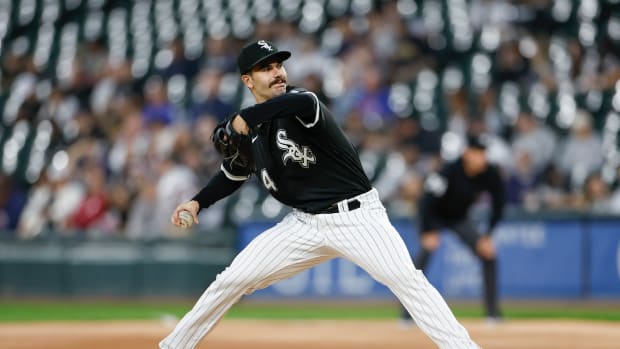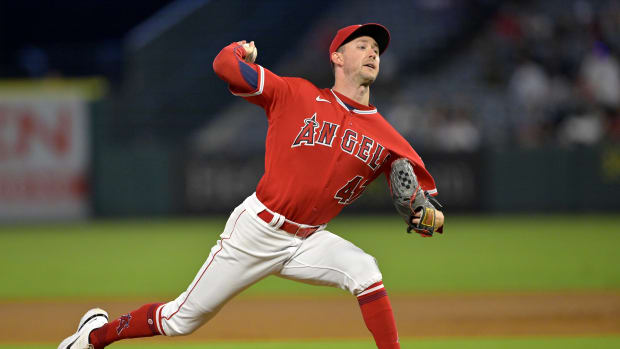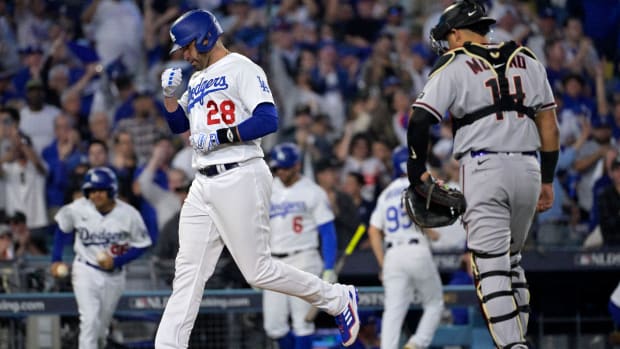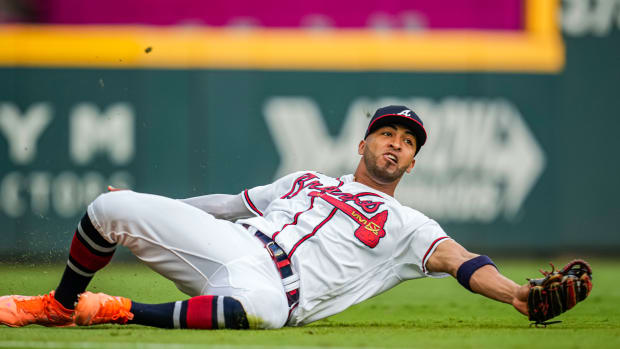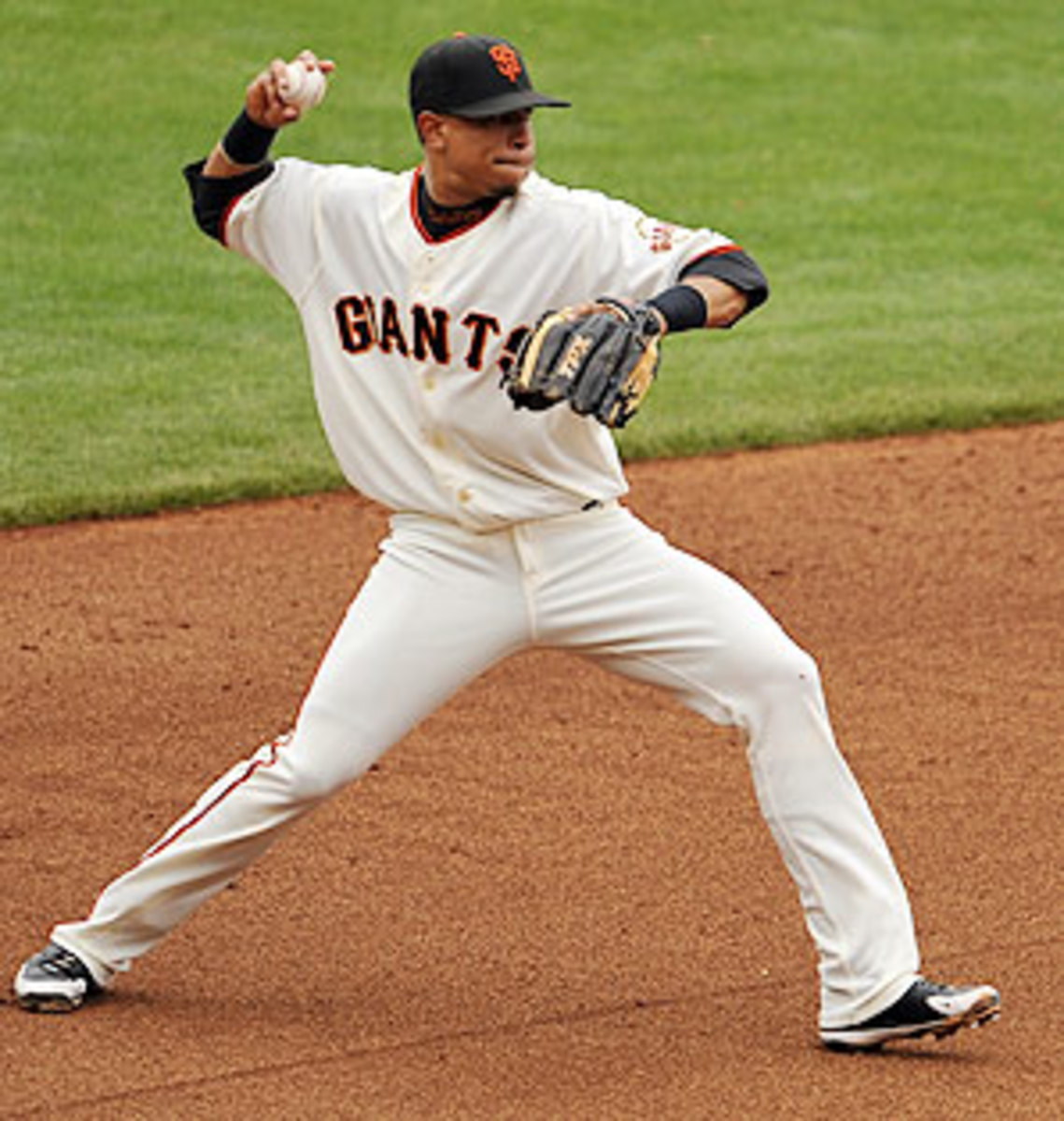
Burriss goes from D.C. to MLB
Emmanuel Burriss is ecstatic. He is in awe. He is in mourning. Earlier this season, Burriss, a graduate of Woodrow Wilson High, became the first product of the Washington, D.C. public school system to play in the majors since 1972.
As he set foot in his hometown last Friday for the start of a four-game series against the Nationals, Burriss, a Giants' shortstop, had plenty on his mind: 'Will I start one game? How will I land enough tickets for my 100 friends and family to watch me play? When will I have time to honor my best friend?'
Holden Kushner: Your childhood friend Deloren Young was senselessly shot down when you were younger. You were going to bring a ball from the game where you recorded your first major league hit to his grave site. What are some of the emotions that brings when you think about that?
Emmanuel Burriss: It's all very emotional, you know. Me and Deloren were pretty much best friends and he was the real reason why I stuck with baseball, he played as well. We were both dedicated to sports growing up. He supported me with my sports and I supported him with his sports. Being back home, and having the opportunity just to pay respect to who he was as a person and who he remains in everybody's hearts is the least I can do.
HK: Are you searching for closure, or is this something that you really aren't so sure you want to do; it's just something you have to do?
EB: It was definitely something I always knew I was going to do. It's not really closure, you know, because I don't think there will ever be any closure for me on that topic. That's just paying, me giving him the respect that he always deserved and he always will deserve, being who he was to me and to so many different people.
HK: For the first time in D.C., when you were growing up, there wasn't even a team here. I've got to think it's a little surreal to see Nationals Park.
EB: It really is, especially to see such a nice park too. You know, back when I was growing up, the closest park to me was Camden Yards. So every once in a while we would go out there, but its nothing like having a major league team here in my own backyard.
HK: It's still taken a while for the people in the city to get with this team, they haven't been successful yet, but how did you follow baseball when there was no team here and you did have to go up to Baltimore?
EB: Well, my parents were big time baseball fans. My father did a great job, you know, he was always watching baseball on TV, and so were my uncles. So, you know, he really kept me involved in the sport and showed me the ins and outs at a young age. Like I said, whenever he had the chance, he would take me up to Baltimore to see a couple of major league games.
HK: How did you really get into baseball without a team being in town? Did your father, Allen, bring you different places around the area to try to get you on a good field?
EB: He did. He did a really good job with his research, you know, to seek out the nice facilities within the city, because there really aren't that many. He took me over to a couple parks where they actually had Little League teams, you know, and it started from there. Once I got older and into high school and everything, he would take me out to the suburbs of Maryland and Virginia and got me involved with teams out there.
HK: Not to harp on the negative, but there had to be some pretty nasty field conditions that you were playing on, growing up here in D.C.
EB: Indeed, there were. Some of the worst fields I ever played on were actually here in D.C. You know, that says something about the city. We're trying to get it together and trying to make sure that we give these kids an opportunity to be actually on a field where they enjoy the game, because it's really tough to do when you're not on a field that isn't up to par. So, yeah it was pretty tough growing up. Starting the game at such a young age, I always had a passion no matter what the field looked like.
HK: Describe some of the conditions. From what I read, you played on a lot of gravel and had one fence that was about 180 feet away. Is that true?
EB: In my high school field, I know it wasn't two hundred feet to right field, so whenever you hit a ball over there it would just be a ground-rule single. I played on one field where it was a legit Little League field, and we just moved the bases back into the outfield and played on that. We never really had any mounds, no dirt on the base paths, so it was pretty bad. But, you know, that doesn't mean it has to continue to be that way. Hopefully the city sees that it's possible to produce a major leaguer, you know. We can start rebuilding the game in the inner-city.
HK: I know the Nationals look at this way, and I do too, there is so much potential talent that isn't being tapped because the accessibility isn't there. How do you get baseball back in there, not only in D.C. but in a lot of inner-cities that are lacking?
EB: I think the biggest thing that would have to start in the inner-city, you know, would be like you said, to start kids at a much younger age. You talk to kids that are 12 and 13 years old, and they're already involved with so many different things, you know, that baseball isn't their main priority. Plus, it's a really hard sport to pick up. I think, if anything, a start would be having 5 and 6 year olds do clinics and start young with them. Get them in some nice facilities and have them grow up with the sport so that way, they can keep that passion just like I did.
HK: I've just got to think that this is such a thrill for you to be out there and be in the field, or be at the plate in your own hometown with a lot of friends and family being there in front of you. What's it like getting a chance to play in front of them, in D.C., something that probably wasn't even realized, something that couldn't have even happened a few years ago?
EB: You know, I was blessed with the opportunity and on top of that though, to be able to step into the box in the city where I grew up and I spent my whole life, it meant a tremendous amount to me but it also meant a tremendous amount to the city. You know, showing them that success doesn't have to be coming from the suburbs; it can come from the inner-city.
HK: Well congratulations to you, this has been a terrific moment for you and best of luck for your continued success.
EB: Thank you.































